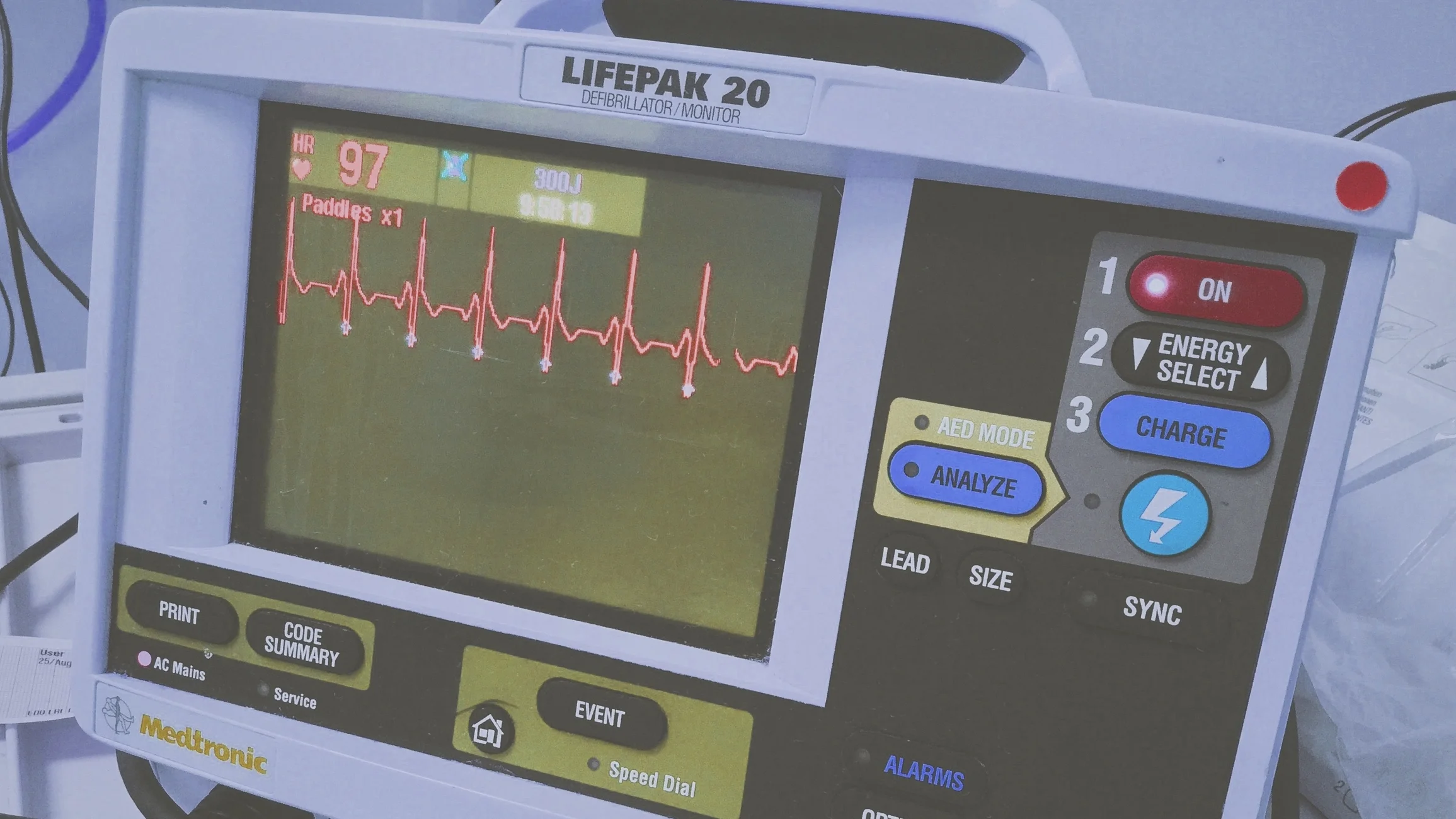This May Well End Badly
"A 55-year old Asian lady presents by ambulance with left-sided heavy chest pain, radiating down her left arm."
The pain came on at rest and lasted 30 minutes. She is pain-free in ED. She’s had chest pain on exertion for three months, for which she takes GTN. She has no other past medical history and is a life-long non-smoker. She looks well and examination is normal.
Here are two ECGS – Top: Pre-hospital ECG, Bottom: ED ECG (Pain Free)
1. What clinical syndrome does the ECG show?
Wellens' syndrome, also known as LAD (Left Anterior Descending Artery Syndrome).
The Left Anterior Descending artery supplies a large part of the left ventricle with blood.
The patient usually presents with cardiac chest pain. Risk factors may be minimal.
The ECG may be normal when the patient is experiencing the pain, but then becomes abnormal after the pain has settled.
2. What is the underlying pathology?
There is a proximal stenosis in the left anterior descending artery.
Angiography in these patients shows there is at least a 50% stenosis of the LAD in these patients, so it’s a high risk lesion.
3. What variations of this syndrome exist and what are the typical ECG changes?
There are two typical changes on the ECG:
The majority (75% of patients) will have inverted T waves in leads V1-V4
In the remainder, the T waves are biphasic (go up and down) in leads V2-V3
4. How would you manage this patient?
This patient is at high risk of having a myocardial infarction. (Most patients with this syndrome progress to myocardial infarction within 8 days and as the LAD is also called ‘The Widow-maker’, this is a diagnosis not to be missed.
They need to be admitted.
Don’t rely on the troponin – it is often normal in this condition!
Ensure that the patient has had 300mg aspirin.
They will need urgent angiography and therefore it is worth discussing them with the cardiology registrar on call who will advise on the use of clopidogrel/LMWH and where the patient should be sent to (CCU versus CDU).
5. What investigation should this patient NOT have done?
This patient should not have an exercise tolerance test as this can lead to myocardial infarction.







